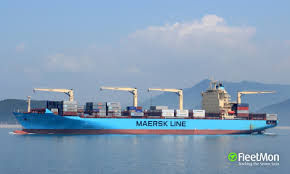
Breaking News
 CME Alert: Major Margin Hikes Across All Precious Metals
CME Alert: Major Margin Hikes Across All Precious Metals
 Mamdani says NYC is facing an unexpected $10 billion projected budget deficit...
Mamdani says NYC is facing an unexpected $10 billion projected budget deficit...
 JOBY WEEKS: A CASE OF INJUSTICE, "HE NEEDS TO BE FREE"
JOBY WEEKS: A CASE OF INJUSTICE, "HE NEEDS TO BE FREE"
Top Tech News
 Critical Linux Warning: 800,000 Devices Are EXPOSED
Critical Linux Warning: 800,000 Devices Are EXPOSED
 'Brave New World': IVF Company's Eugenics Tool Lets Couples Pick 'Best' Baby, Di
'Brave New World': IVF Company's Eugenics Tool Lets Couples Pick 'Best' Baby, Di
 The smartphone just fired a warning shot at the camera industry.
The smartphone just fired a warning shot at the camera industry.
 A revolutionary breakthrough in dental science is changing how we fight tooth decay
A revolutionary breakthrough in dental science is changing how we fight tooth decay
 Docan Energy "Panda": 32kWh for $2,530!
Docan Energy "Panda": 32kWh for $2,530!
 Rugged phone with multi-day battery life doubles as a 1080p projector
Rugged phone with multi-day battery life doubles as a 1080p projector
 4 Sisters Invent Electric Tractor with Mom and Dad and it's Selling in 5 Countries
4 Sisters Invent Electric Tractor with Mom and Dad and it's Selling in 5 Countries
 Lab–grown LIFE takes a major step forward – as scientists use AI to create a virus never seen be
Lab–grown LIFE takes a major step forward – as scientists use AI to create a virus never seen be
 New Electric 'Donut Motor' Makes 856 HP but Weighs Just 88 Pounds
New Electric 'Donut Motor' Makes 856 HP but Weighs Just 88 Pounds
 Donut Lab Says It Cracked Solid-State Batteries. Experts Have Questions.
Donut Lab Says It Cracked Solid-State Batteries. Experts Have Questions.
Maersk puts a giant battery on a container ship to improve efficiency

The Cape Town, built in 2011, is flagged from Singapore and carries cargo between West Africa and East Asia. The battery will be installed on the ship in December 2019 and its first voyage with the new technology will happen early in 2020. The battery module was designed to take the place of a cargo container on the ship and can be charged in port, will take charge from the ship's generator, and from the Cape Town's waste heat recovery system. The lattermost system is in place on most Maersk ships and recharges the ship's batteries by using the heat created by engine exhaust to create electrical power.
The battery itself will be used in several ways to reduce emissions and improve efficiency on the Cape Town. It will reduce the load on the Cape Town's generator, will add power during peak load requirements and will reduce the need to run the generator during low-load times.

 It's not a conspiracy anymore
It's not a conspiracy anymore

